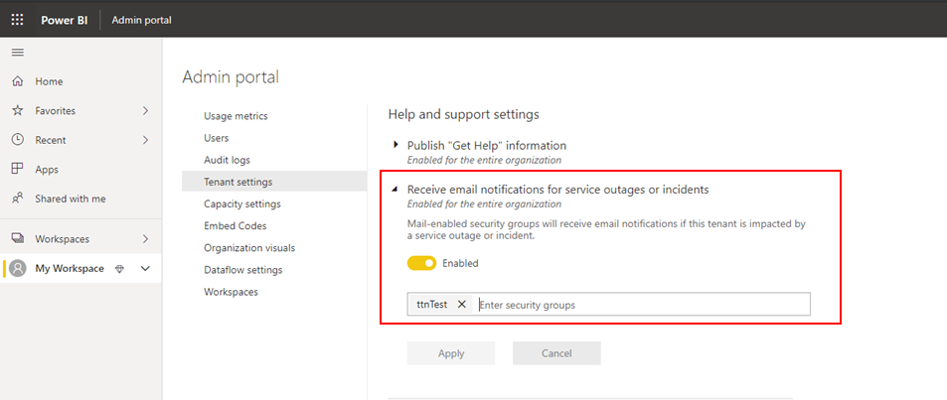Power BI introduces service availability notifications
Having insight into the availability of your mission critical business applications is extremely important to ensure that you, as a Power BI admin, can serve your users. Today, we are pleased to launch the preview for service availability notifications. With this feature, you can opt-in to receive email notifications when there is a service disruption or degradation. While Power BI’s 99.9% SLA makes these occurrences rare, we want to ensure that you are covered even for those rare events. To ensure that all the affected users are aware of these updates, the tenant administrator can create a security group with all the pertinent user email addresses. This preview release will include support for Premium capacity scenarios and will be followed by other scenarios for Pro as well.
Examples of these notifications include when users experience an extended delay in operations like opening reports, dataset refresh or query executions.
Enabling this feature simply requires a tenant admin to login to their admin portal, opt-in to receive these notifications, and provide a preferred security group. Once enabled, you will receive email notifications when the service has been disrupted or degraded. Furthermore, you will also be notified when the issue has been resolved.

For more information on this feature, please read our documentation.




